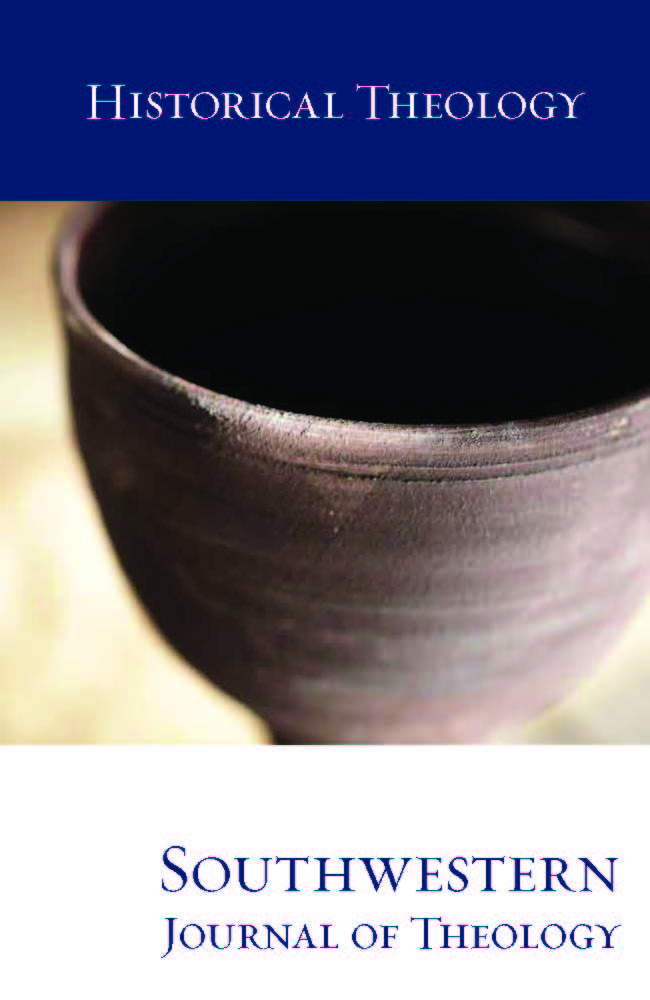
Historical Theology
Southwestern Journal of Theology
Volume 57, No. 2 – Spring 2015
Managing Editor: Terry L. Wilder
By Wayne Grudem and Barry Asmus. Wheaton: Crossway, 2013. 398 pages. Paperback, $23.97.
While economic issues have always been at the forefront of politics, philosophy, and theology, these issues have become more prevalent since the onset of the Great Recession in 2008. Many are now asking what correct economic policy should look like not just for the US but also for the world, especially those nations mired in poverty. In their latest book, Wayne Grudem and Barry Asmus attempt to assert a sustainable solution that nations may us to lift almost all residents out of poverty (25). They further contend that such a solution is grounded in a Christian worldview.
According to the authors, the goal of this solution is for a nation to produce more goods and services so that there will be more wealth available to people. This goal requires a nation to examine it laws, cultural values, and traditions to see if they support such an endeavor (45-48). Such production involves creating more objects of value rather than redistributing wealth or printing more money (52-54). As they argue in chapter 2, nations must avoid the wrong goals which do not lead to prosperity: depending on donations, redistribution, depleting natural resource rather than diversifying, or by blaming factors and entities external to the nation. These goals will not lead to prosperity.
This conclusion leads to the central question of chapter 3. What kind of economy best motivates people to bring about more goods and services? There are many systems that will not work: hunter-gatherer, subsistence farming, slavery, feudalism, mercantilism, socialism/communism, and the welfare state. The authors contend that all of these systems take away the worker’s incentive or ability to produce. Without production of goods and services, these systems cannot lead to prosperity. The authors content that a free-market system where individuals control the means of production and determine production and consumption through free, individual choices without government control or compulsion is the only economic system that produces prosperity (131-32).
The free market is a complex system that makes complex products that spontaneously emerges from the free choices of many individuals since no one person can have enough information to decide how the market should operate and produce (140-41, 163-64). Such a system requires the rule of law, property rights, sound currency, and low taxation in order to incentivize people to work and to prosper. This system also requires a system of government that protects against corruption and tyranny, provides protection for citizens from crime and war, upholds individual rights, and promotes national welfare through education, strong biblical families, and religious freedom (223-58). The free market also involves moral virtues, such as responsibility, integrity, and cooperation; however, it does not make people perfectly virtuous. It does tend to discourage as well as punish immoral behavior (187-88). The establishment of such a market will require change in cultural traditions that impede economic growth, which includes a nations beliefs about God, human nature, morality, the family, the earth, as well as economic and political issues (309-68). Only then can a nation and its people be lifted out of poverty and sustain prosperity.
Grudem and Asmus have done an incredible job of boiling down economic jargon and presenting it in an easy to understand matter. At the same time, they do not skimp on analysis. They present a breadth of penetrating analysis and argument to support their contention that the free market is the correct solution. On the other hand, the theological aspect of the book is not as pronounced. While theological insights are scattered throughout the book, it is not until the final chapter that any grand theological argument is presented. More attention is given to economics than to theology.
Grudem and Asmus go astray in two other areas as well. First, the authors argue that the Bible supports a federally-controlled social safety net (77-79). However, the authors’ arguments do not support such a conclusion. The Scripture passages used to support such a safety net do not necessarily imply the authors’ claims. They only imply that rulers are to do good for their people, which can be accomplished in a variety of ways. The authors stretch Scripture to support their argument. Further, they immediately undermine their claim in the next paragraphs by stating that Scripture and the free market deny government the right to redistribute wealth by force. A federal social safety net, however, requires the government to forcibly redistribute wealth through taxation. The authors cannot have it both ways.
Second, the authors explicitly state their support for a currency backed by gold. This type of currency is in opposition to a fiat currency which has value based on the good faith of the nation. Such a currency can be easily debased or lost (156). Gold, however, is itself a fiat currency. It only has value as long as people believe it has value. Many cultures, like the Incas, never valued it as currency. Further, gold is a limited resource, and it cannot be consumed. A day may come when gold is no longer desired or able to be found. While gold can help stabilize a currency, it should not be an economic crutch.Overall, Grudem and Asmus do an excellent job at presenting a sustainable solution to world poverty that is also biblically based. While this book is not the complete word on the issue, it is certainly a starting point for both governments and churches in their mission to serve a struggling world.





